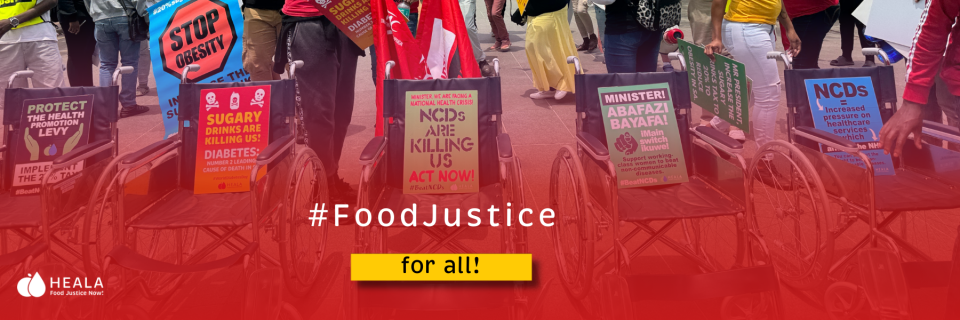
Thirty-year-old Siyakholwa Mkoka from Khayelitsha, a township in the Western Cape, lives in a seven-person household. Each month, the family has just R3000 to feed all seven mouths.
According to the July Household Affordability Index released by Pietermaritzburg Economic Justice and Dignity “[y]ear-on-year: The cost of a basic nutritional food basket for a family of 7 members increased by R240,47 (3,9%) from R6 165,69 in July 2023 to R6 406,16 in July 2024.”
Mkoka’s family has less than half of what is needed to achieve a basic nutrition.
South Africa suffers from the triple burden of malnutrition, obesity, undernutrition (Stunting, low birth weight) and micronutrient deficiency. This overly affects women and the children they care for.
“Most of the time we buy unhealthy food. It is rare that we buy healthy food. We buy coke every day. I am worried that the food we are eating will make us sick,” Mkoka says.
Almost 70% of all women in South Africa are overweight and obese, putting them at an increased risk of non-communicable diseases and death while malnutrition is the underlying cause of death in a third of child deaths in South Africa.
Mkoka is already concerned about her weight. “I was told that my weight was not good. I did try to cut down on food, however it is very difficult,” she says.
“The challenge that we face is that the food (we buy) is very addictive,” she explains.
Experts are raising the alarm on the dietary intake of low-income adults in South Africa. According to one study, adults from low income households on average get 40% of their daily calories from ultra-processed food.
Ultra-processed foods are often cheap, high in salt, saturated fat and sugar and are engineered to taste good. The overconsumption of these foods is linked to increased rates of obesity.
The Cancer Association of South Africa (CANSA) warns that the, “common health effects of overweight and obesity raised BMI is a major risk factor for number of cancers such as breast cancer (postmenopausal women), cancer of the colon, cancer of the rectum , cancer of the uterus, cervical cancer and endometrial cancer.
Making good food choices in an environment dominated by ultra-processed food is challenging for many due to low nutrition levels. Interventions like front-of-pack warning labels (FOPWL) can make it easier for everyone to readily identify foods high in salt, sugar and saturated fat and make better food choices.
For decades, the food and beverage industry has fed the public the myth that what we eat is our choice alone. This has created stigmatising and shaming narratives that lay the blame for non-communicable diseases such as obesity and diabetes squarely at consumers’ feet — ignoring the larger food system.
The FOPWL will also make it harder for corporations to market to vulnerable children by restricting the use of cartoons and collectable toys to lure children to consume unhealthy foods.
Mkoka explains that even on a tight budget, she often capitulates to her daughter’s pleas for an unhealthy snack. When they go shopping together, her four year old daughter begs her for a Kinder Joy egg because she wants the toy inside the snack. This puts further strain on an already tight budget and makes shopping more difficult.
This Women’s Month, HEALA is urging the government to adopt these vital regulations to support the improvement of health and wellbeing of all, particularly women and children.
DID YOU KNOW?
HEALA: HEALA is a coalition of civil society organisations advocating for equitable access to affordable, nutritious food in South Africa by building a more just food system.
INFO SUPPLIED.


